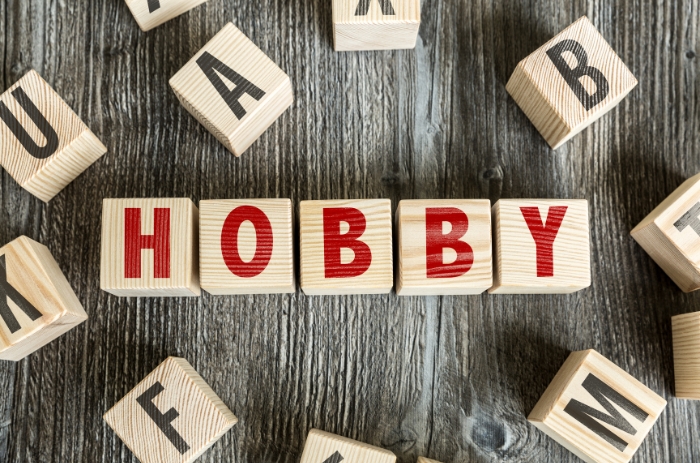When thinking about the journey to overcome addiction, medical treatments and counseling sessions are usually the first things that come to mind. However, one key component that often gets overshadowed is the therapeutic power of hobbies. These activities, which might seem simple or even trivial at first glance, can serve as effective tools for self-expression, personal growth, and building a fulfilling life that moves beyond addiction. In this article, we explore the transformative role of hobbies in addiction recovery in more depth.

Hobbies: More than Just Time Fillers
Hobbies often get labeled as mere time-fillers or leisure activities. However, these pursuits carry a much deeper significance, especially in the context of addiction recovery. Hobbies that you enjoy and are passionate about can serve as a distraction from cravings, create a sense of purpose, and help in constructing an identity that isn’t defined by substance use. Furthermore, engaging in such activities can provide structure to your days and bring a sense of normalcy to your life, both of which can be beneficial during the recovery process.
The Healing Power of Creative Expression: A Deep Dive

Creative hobbies such as painting, writing, playing a musical instrument, or crafting can play a unique role in the recovery journey. They offer an avenue for expressing complex emotions that might be difficult to articulate verbally. This process of expressing emotions through creative pursuits can be therapeutic and help in managing the emotional turmoil that often accompanies addiction recovery.
Moreover, creative hobbies encourage mindfulness — the practice of focusing your awareness on the present moment, while calmly acknowledging and accepting your feelings, thoughts, and bodily sensations. Engaging in a creative activity often requires full attention and concentration, naturally fostering a state of mindfulness. This can help alleviate anxiety, stress, and negative thoughts, thus contributing to mental well-being.
The Physical and Psychological Benefits of Active Hobbies

Physical hobbies — such as yoga, running, cycling, or participating in team sports — bring with them a plethora of benefits. On a physical level, these activities help combat some of the physiological effects of addiction, such as insomnia, reduced energy levels, and decreased physical fitness. They can also aid in alleviating withdrawal symptoms and reducing cravings.
Furthermore, physical activity stimulates the release of endorphins, the body’s natural mood elevators. This can help counteract feelings of depression and anxiety, fostering a sense of well-being and happiness.
The benefits of active hobbies go beyond physical and mental health. For instance, participating in team sports can improve social skills, build supportive relationships, and foster a sense of community — all of which can enhance the recovery experience.
Harnessing Hobbies for Skill Development and Self-esteem

Hobbies can serve as a means of personal development, enabling the cultivation of new skills and knowledge. Whether it’s learning to play a musical instrument, cooking a new recipe, or mastering a chess strategy, the process of acquiring and honing a skill can be immensely fulfilling.
Achieving progress or mastery in a hobby can also boost self-esteem and self-confidence — qualities that are often eroded by addiction. This can lead to a more positive self-image and increased self-efficacy, both of which are critical for sustaining long-term recovery.
The Healing Embrace of Nature

Nature-based hobbies — such as gardening, bird-watching, hiking, or outdoor photography — can offer unique therapeutic benefits. Numerous studies have documented the calming effects of nature, showing that spending time outdoors can reduce stress, improve mood, and foster a sense of peace and tranquility. These effects can be particularly beneficial during the often stressful and emotionally challenging recovery process.
Building a Supportive Community through Shared Interests
Many hobbies provide opportunities for social interaction and community-building. Whether it’s joining a book club, participating in a painting class, being part of a running group, or engaging in a local gardening society, these activities can help you form connections with individuals who share similar interests. This shared bond over common hobbies can act as a catalyst for the development of deep, meaningful relationships.
The sense of community that comes with shared hobbies extends beyond mere companionship. It can provide a strong support network during your recovery journey, offering both emotional support and practical advice. Knowing that there are others who share your interests and understand your struggles can help to alleviate feelings of loneliness and isolation that often accompany addiction recovery.
Importantly, hobbies can also serve as the basis for building relationships that are not based on past substance use. This is a critical element in reshaping your social identity and reinforcing your commitment to a substance-free lifestyle. Forming new connections around healthy, enjoyable activities can help to distance your social life from previous patterns of substance use.
In addition, being part of a community of hobbyists can expose you to positive role models and provide opportunities for mentoring. Experienced members of the group can offer guidance and support as you navigate both your hobby and your recovery journey. They can share their own experiences, strategies, and insights, providing valuable lessons that can aid in your recovery.
Finally, participating in a hobby-focused community can foster a sense of belonging, enhancing your emotional well-being. This sense of belonging can act as a powerful motivator in maintaining your recovery efforts, as you begin to see yourself as an integral part of a group that values your participation and contribution.
The Journey to Discovering the Right Hobby
The process of finding the right hobby is deeply personal and should be driven by your own interests, passions, and unique recovery needs. It’s essential to choose an activity that genuinely captures your interest and enthusiasm, as this will provide the motivation to engage consistently and experience the associated benefits.
A good starting point is to reflect on your interests and passions. What are the activities that you’ve always wanted to try, but never had the chance? Are there hobbies you once loved, but put aside due to your addiction? Start by exploring these areas.
Next, consider your personal circumstances and limitations. It’s important to choose a hobby that suits your lifestyle and physical capabilities. For instance, if you have physical health considerations, activities like yoga or low-impact sports might be more appropriate than high-intensity exercises. Likewise, if you have a busy schedule, you might prefer hobbies that are flexible and can be done at your own pace, like reading, painting, or knitting.
Don’t be afraid to try out several activities before settling on the right one. You might discover new passions in the process, or you might find that certain activities are not as enjoyable or fulfilling as you imagined. This exploration is all part of the journey. Remember, there’s no rush to find the ‘perfect’ hobby. The goal is to find an activity that enriches your life, helps you navigate your recovery, and brings you joy and fulfillment.
Hobbies: An Underrated Aspect of a Comprehensive Recovery Plan
While hobbies alone cannot cure addiction, they can serve as a potent supplement to traditional treatments. By offering a constructive way to fill time, fostering a sense of purpose and achievement, and facilitating the development of a fulfilling, substance-free lifestyle, hobbies can play an integral part in the recovery journey.
In the end, pursuing a hobby is not just about passing time or keeping busy; it’s about rediscovering yourself, redefining your identity, and rebuilding your life — one step at a time. So, whether you find solace in painting, thrill in hiking, or joy in playing music, remember that every moment you spend on your hobby is a moment spent on your journey to recovery.




